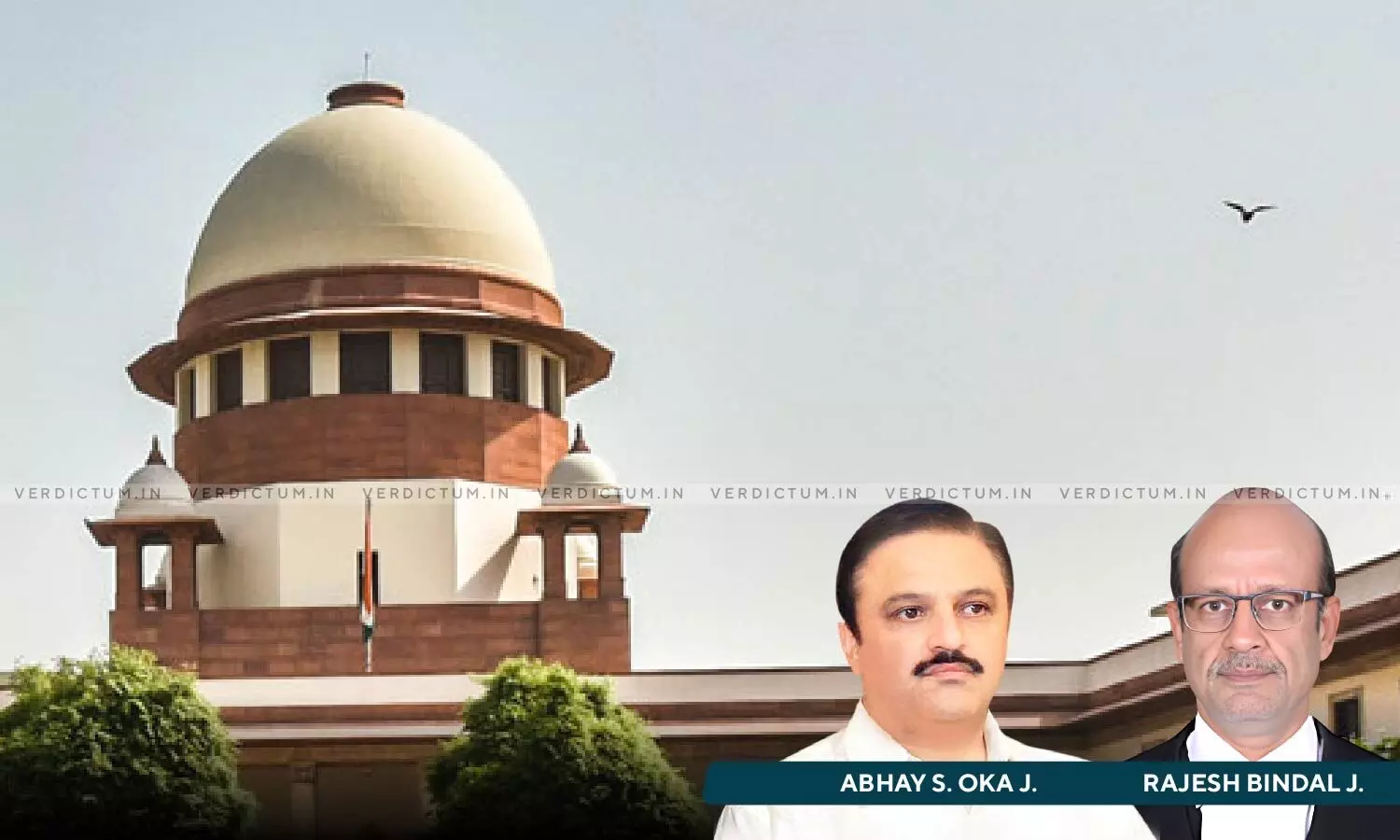
Orissa: All Central & State Laws Will Continue To Apply To Scheduled Areas Unless There’s Specific Notification- SC
 |
|The Supreme Court while dismissing an appeal filed by the Adivasis for Social and Human Rights Action has held that all the Central and State laws being applicable to the State of Orissa will continue to apply to the Scheduled Area unless there is a specific notification issued by the Governor.
The Court further held that non-Tribals have the right to settle down in a Scheduled Area as every citizen has a right to reside and settle in any part of the territory of India under Article 19(1)(e) of the Constitution.
The two-Judge Bench of Justice Abhay S. Oka and Justice Rajesh Bindal asserted, “All the Central and the State laws which are applicable to the entire State of Orissa will continue to apply to the Scheduled Area unless, in exercise of powers under sub-clause (1) of Clause 5 of the Fifth Schedule, there is a specific notification issued by the Hon’ble Governor making a particular enactment inapplicable, either fully or partially … The power of the Hon’ble Governor under Clause 5 of the Fifth Schedule is restricted to directing that a particular law will not apply to the Scheduled Area or it will apply with such modifications as may be specified in the notification issued under sub-clause (1) of Clause 5 of the Fifth Schedule or while making Regulations in terms of sub¬clause (2) of Clause 5 of the Fifth Schedule.”
The Bench said that the power of the Governor under clause 5 of the Fifth Schedule does not supersede the Fundamental Rights under Part III of the Indian Constitution and that such fundamental rights of the citizens can also be exercised in relation to a Scheduled Area.
Advocate A. P. Mohanty appeared for the appellant while Advocates Sibo Sankar Mishra, Umakant Misra, and Prabhati Nayak appeared for the respondents.
Facts -
The appellant, a society registered under the Societies Registration Act, 1860, invoked the writ jurisdiction of the High Court under Article 226 of the Constitution and the first contention raised in the writ petition was that in the Scheduled Area, except for the members of the Scheduled Tribes, no one has the right to settle down and that every person, who does not belong to Scheduled Tribe and residing in the Scheduled Area, is an unlawful occupant and, therefore, is disentitled to exercise his right to vote in any constituency in the Scheduled Area. Further contention raised was that every constituency in the Scheduled Area should be declared as a reserved constituency under Articles 330 and 332 of the Constitution of India.
It was also urged by the appellant that no candidate, other than the candidates belonging to the STs, should have the right to contest the elections of the Legislative Assembly or the Lok Sabha in the Scheduled Area and that the Representation of the People Act, 1950 and the Delimitation Act, 2002 are not applicable to the Scheduled Area in the absence of any notification. A Division Bench of the Orissa High Court dismissed the writ petition and being aggrieved with the same, an appeal was preferred.
The Supreme Court after hearing the contentions of the counsel observed, “The argument that the Fifth Schedule is a law made by the Parliament is misconceived. Even assuming that Fifth Schedule is a law, it does not put any constraints on the exercise of the Fundamental Rights under Article 19(1) of the Constitution of India. … As far as the right to vote is concerned, the 1950 Act is applicable to the Scheduled Area and therefore, the appellant cannot contend that only a person belonging to Scheduled Tribe can cast a vote in elections of the constituencies in the Scheduled Area. The right to vote will be governed by Part III of the 1950 Act.”
The Court further noted that every eligible voter is entitled to be registered in the electoral roll of a constituency in which he is ordinarily residing and therefore, any person eligible to vote who is ordinarily residing in the Scheduled Area has a right to vote, even if he is a non-Tribal.
“As regards providing reservation for all the Lok Sabha and the State Legislative constituencies in a Scheduled Area, the appellant cannot contend that all the constituencies in a Scheduled area should be reserved for the Scheduled Tribes. Reservation is required to be made in terms of Articles 330 and 332 of the Constitution of India. These provisions do not provide that all the constituencies in the Scheduled Areas shall be reserved for Scheduled Tribes”, said the Court.
The Court concluded that the Delimitation Act is applicable to the Scheduled Area and hence, the prayer to issue a writ of mandamus as regards the reservation for the STs deserves to be rejected.
Accordingly, the Court dismissed the appeal and upheld the decision of the High Court.
Cause Title- Adivasis for Social and Human Rights Action v. Union of India & Ors.